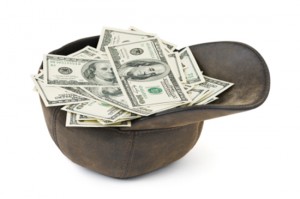Guess what, online comments can be awful!
Yeah, this is nothing new.
But still, when so many people in the street and on tourist websites are pro-buskers, why are online comments about them so negative?
Well, anger and fear are two of the most motivating emotions (especially when it comes to voting). So there’s good scientific reasons why comments are crappy; happy people don’t feel any need to comment on internet articles (the same is mostly true for the mentally stable, employed people and adults).
But there’s also a lot of misunderstanding about street performers. This is partly why we’re here.
So, without further ado, here are our suggestions for reasoned, calm ways of responding to stupid, ignorant comments about buskers.
If you disagree with any of them, let us know in the comments!
—
“Buskers are beggars”
The old joke is that buskers are “beggars with a gimmick”.
But busking has social and economic benefits for society. It provides a solid income for artists in overcrowded and underpaid professions. It makes up for revenue lost to digital streaming services. It’s good for tourism. It’s promoted by several governments around the world. It creates destinations and cultures. It connects people to the places they’re in. It embodies “placemaking”, the urban planning concept that is increasingly promoted by UN Habitat. Buskers are flown to festivals all over the world.
If a beggar picks up a drum and starts hitting it just to get more attention, are they a busker? That depends on how you look at it. So yes, there is a grey line at some point between the two. But there are so few beggar-style buskers out there (despite how much people complain about them) it’s barely worth thinking about.
In other words, 99% of busking is very, very far away from begging.
“Buskers don’t pay their taxes”
I go with two different arguments on this one:
First, some buskers live below the poverty line, lower than the starting tax brackets. Others make so much money that they have to declare their income, because nobody’s keeping $40k in coins under their mattress.
Just like all other professions, some play by the rules and some don’t. But unlike many middle and upper class people, at least their tax evasion (when it happens at all) isn’t stored by the million in undisclosed foreign banks. In the unlikely situation that they are hiding money under the bed, at least it’s going to be recycled back into the local economy. Or go up in smoke…
Secondly, and more importantly – many artistic institutions are given non-profit status for various reasons, including:
- programs for people from disadvantaged backgrounds
- their reach with regard to children
- and they pay artists (i.e. support the arts).
 Which of those reasons is NOT doubly true for street performers? Buskers’ audiences are so diverse they put other scholarship programs to shame, they are the first artistic experience that many children have and 100% of the money goes to artists.
Which of those reasons is NOT doubly true for street performers? Buskers’ audiences are so diverse they put other scholarship programs to shame, they are the first artistic experience that many children have and 100% of the money goes to artists.
Of course everyone should pay their tax. But why wouldn’t you give buskers the same breaks as other cultural institutions?
“Buskers are annoying/loud/talentless”
It’s true that SOME buskers fit the above description – we’ve all met them. But they are in the minority. The vast majority of street performers abide by common sense rules, are incredibly talented and are often very successful. You cannot look at an audience of hundreds of people clapping and cheering and think that the street performer in the middle of it all is objectively talentless. Eye of the beholder.
“Nobody cares about buskers”
Robin Williams, Tracey Chapman, B.B. King. If you like any of them, you care about buskers.
And Steve Martin, Ed Sheeran, Justin Bieber, Woodie Guthrie, Manu Chao, Amanda Palmer, Penn Jillette (from Penn and Teller), Norah Jones, Kanye West, Joni Mitchell, Pierce Brosnan, Edith Piaf, Blue Man Group, Beck, Simon and Garfunkel, Sting, Leonard Cohen, John Butler, Glen Hansard, Cirque du Soleil and Benjamin Franklin.
Ever met someone who hates Robin Williams? Or doesn’t care about any of the above names? Of course you haven’t. Buskers are a major part of our culture.
“Buskers are commercial entities”
This one is a more complicated concept to address, so it has the longest answer. In short, though, money raised through entertainment is not bad money.
For example, I ask everyone I know to name one artist that we BOTH know about who doesn’t make a living out of their art; ticket sales, music sales, commissions, advertising, television fees…you know, normal art income. And to sell tickets or get on TV they normally have a manager, PR person, security guards, record label and all the other stuff that goes with being an artist.
Buskers don’t have any of that stuff.
A busker’s audience has not been swayed by a savvy press department, the cult of celebrity or the personal tastes of art critics, nor by lavish surroundings, fancy lighting or massive PA systems. On the street it’s just an artist and their audience, where payment is voluntary and when it does occur the price matches how much the audience member thinks it was worth.
People focus on the money that buskers earn because it’s lying there in  the street, in full view, in front of everyone. It isn’t being forced through sales or product placements or native ads. So people are curious; how much do street performers earn?
the street, in full view, in front of everyone. It isn’t being forced through sales or product placements or native ads. So people are curious; how much do street performers earn?
Ed Sheeran used to busk on the street, with no boundaries between artist and audience, singing material that nobody had heard before. He had cash in his guitar case.
Now, he’s about to sell out the 17,000 seats at the Hollywood Bowl, at $30 to $90 a ticket. That’s a single concert earning between $500k and $1.5m. To be as transparent with his earnings as he was when he was a busker, he should have that money piled on the front of the stage.
Your thoughts?
We’d love to hear what you think about the above arguments. How can they be improved? What other criticisms do you get?
Donate to The Busking Project
Your donation keeps us in business, and it supports street art all over the world!






